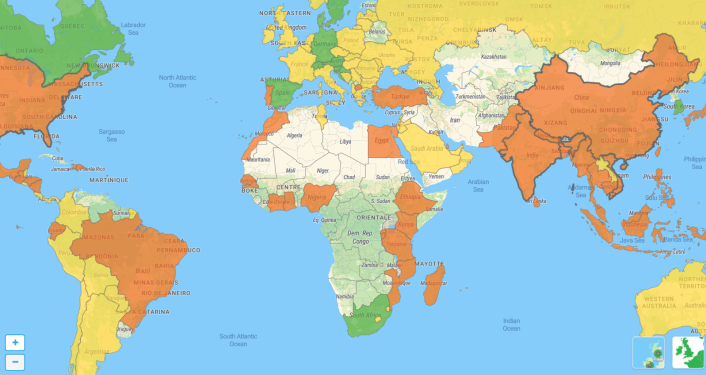The Apparel Industry is Overlooking a Key Component of Environmental Risk: Water
Fashion is rising and with it rises the impact of production on global water consumption and wastewater management. Corporate supply chains are responsible for nearly two-thirds of all water consumption and a recent CDP report found the apparel industry alone accounts for 20% of global wastewater and industrial pollution.
Wastewater is one of the key contributors to global warming and climate change and yet, wastewater management in supply chains is rarely in the spotlight. Wastewater pollutants can lead to the depletion of oxygen in water bodies, killing aquatic life, and the release of methane gas and carbon dioxide, contributing to global warming.
How pervasive is the wastewater issue for the apparel industry?
Key sourcing markets are showing higher wastewater violations from onsite audits. Wastewater from processes involved in the apparel industry include spinning, weaving, dyeing, and finishing. Each of these steps emits greenhouse gases such as carbon dioxide, methane, and nitrous oxide. Textile dying alone is one of the largest contributors to wastewater worldwide.
Most major sourcing countries saw more wastewater violations during onsite audits over the past year. Many countries — including China, India, Bangladesh, the US, and Mexico – all show high levels of risk associated with wastewater management, reflecting that the treatment of wastewater at many sites within these countries does not meet the legal thresholds for discharges. Wastewater management issues can be attributed to inadequate infrastructure or weak enforcement of environmental regulations. This is especially true for leather products, footwear, and knitted constructions: all of which we classify as medium risk for water pollutants and extreme risk for water use.

How are supply chains responding?
Well, most are not. Carbon emissions tend to take the focus of supply chain environmental governance frameworks. Data from a recent CDP report shows only 39% of companies are engaging their suppliers on climate-related issues and 23% of 915 companies surveyed engaged their suppliers specifically on water-related issues. Remediation efforts prioritize human rights violations or carbon emissions. The CDP report showed more than 60% of companies that responded to a questionnaire do not consider their suppliers to be stakeholders in water risk assessments and none have set targets related to both supplier engagement in measurement activities and the reduction of water pollution. Only 3% of companies have water-related incentives in place.
Who is taking steps in the right direction?
CDP highlighted Hermes as a brand spearheading water-related efforts within its supplier base. The company requires all its suppliers to report water risks and requests an external audit if a water risk is identified. The company also carries out regular visits and conducts third-party audits for wastewater discharge monitoring.
Supply chains must engage their suppliers in climate-change efforts and deploy better strategies for wastewater treatments. The urgency of the issue may not be as obvious as human rights violations, but the impact of wastewater can be detrimental to human health, contaminating drinking and bathing water sources, leading to the spread of diseases. Wastewater harms marine ecosystems and contributes to climate change. Corporates should increase their focus on wastewater management in the risk monitoring process and targets must be effectively communicated throughout supplier bases to promote more sustainable practices. Increasing expertise in these specific areas on corporate boards will promote better practice and leadership throughout the entire value chain.
About the author
